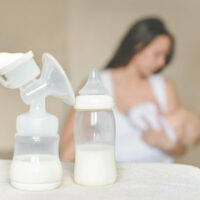California Legislature Passes Bills to Strengthen Workplace Breastfeeding Protections

A pair of bills recently passed by California’s legislature would strengthen protections for women breastfeeding in the workplace. The bills now await Governor Brown’s signature. Continue reading for details about the new laws, and contact a skilled California labor and employment lawyer with questions about how these laws could affect you or your organization.
Senate Bill 937 and Assembly Bill 1976
Existing California law already includes some requirements for women in the workplace to accommodate breastfeeding, including requiring employers to give employees sufficient break time for a woman to breastfeed, give employees rest periods (or compensating them for missed rest periods), and make reasonable efforts to provide a room or sufficiently private location other than a bathroom for a woman to breastfeed.
SB 937 amends three sections of California’s Labor Code (sections 1030, 1031, and 1033) and adds two more (1034 and 1035) to expand these protections. SB 937 requires employers to provide a lactation room or location, other than a bathroom, that has minimum features including a place to sit, a sink with running water, a refrigerator, and electricity, as well as maintain a policy to accommodate lactation. SB 937 expands statewide the workplace requirements that San Francisco had already passed city-wide last year. The bill also requires employees to document requests for lactation accommodation to provide to the state Labor Commission upon request. Failure to accommodate lactation or provide a reasonable location would be treated the same as denying a break or rest period under existing law. The bill prohibits retaliation against an employee for exercising the rights under the bill.
AB 1976 is a less-sweeping bill to amend part of section 1031, specifically by requiring the lactation room not be a bathroom and noting specific accommodations for nursing women who work in agriculture. In an agricultural workplace, an employer would be deemed compliant if they provide a private, enclosed, shaded space, including the air-conditioned cab of a truck or tractor.
Both bills contain provisions allowing employers to get out of the requirements by showing that compliance would cause an undue hardship when considering the size, nature, or structure of the business. SB 937’s hardship exemption specifically applies to businesses with fewer than 50 employees.
Bay Area Employment Law Attorneys
If you are a San Francisco Bay Area employer or employee needing personal assistance navigating the new laws, revising company policies or pursuing a discrimination claim, contact the Richard Koss Bay Area employment law attorneys at 650-722-7046 on the San Francisco Peninsula, or 925-757-1700 in the East Bay.